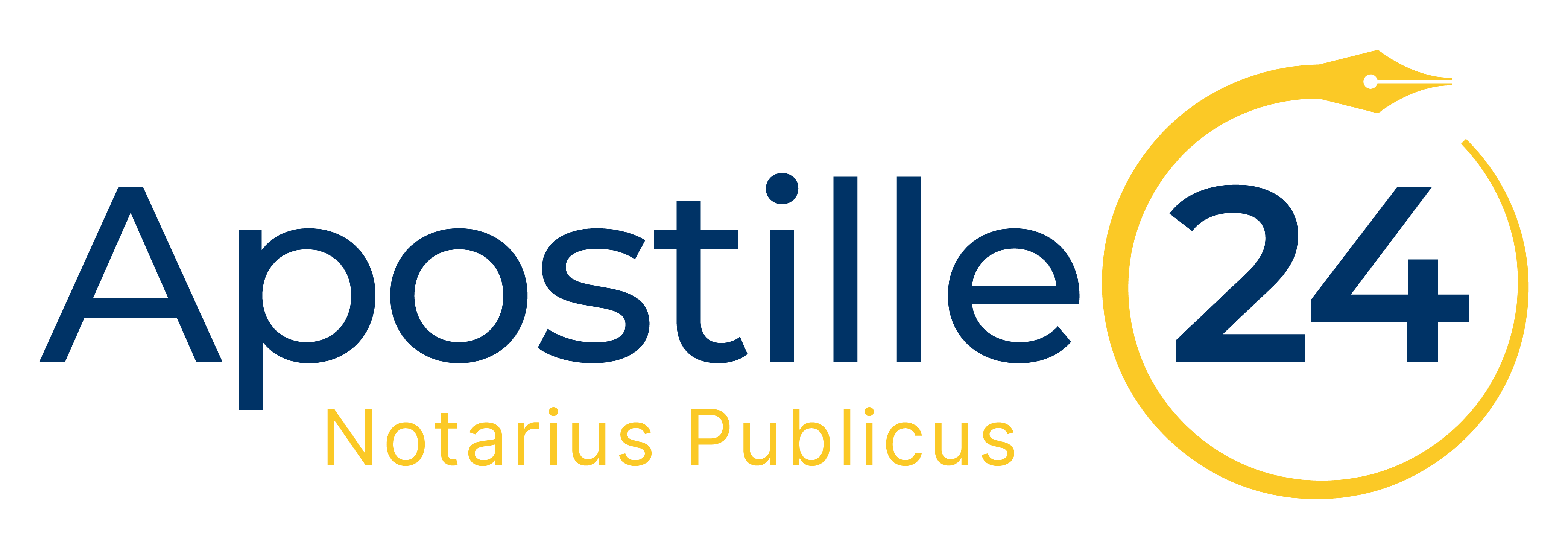E-Apostille
Do you need an E-Apostille from a Notary Public?
An E-apostille, also known as an electronic apostille, is a digital version of the traditional apostille stamp or certificate. It is a secure way to authenticate and legalize documents for use in international transactions.
E-apostilles are becoming increasingly popular as more countries adopt digital systems for document authentication and legalization. They are especially useful for businesses and individuals who frequently deal with international transactions, such as those in the legal, financial, and logistics industries.
Here are a few examples of the types of documents that can are common to be provided with an E-apostille:
- Birth certificates
- Marriage certificates
- Death certificates
- Diplomas and academic transcripts
- Commercial and legal documents
- Power of attorney documents
- Patent and trademark certificates
At Apostille24, we are proud to offer our customers the convenience of E-apostille services. Our team are experienced in the intricacies of document authentication and legalization, and we work closely with our clients to ensure that their documents are processed quickly and accurately.
We understand that these type of services can be complex and time-consuming, which is why we strive to make the process as easy and stress-free as possible. Whether you need an E-apostille for a personal document or a commercial contract, we have the expertise and resources to get the job done.
Contact us at support@apostille24.se or the contact form to the right to learn more about how we can help you.
What is an Apostille and what is an E-Apostille?
The Hague Convention of 5 October 1961 Abolishing the Requirement of Legalisation for Foreign Public Documents, or the Apostille Convention, is the international treaty that governs the use of apostilles (Which is a form of stamp). The Convention simplifies the legalization process for public documents, such as birth, marriage and death certificates, diplomas and degrees, and notarial acts, by eliminating the need for consular legalization.
The E-apostille is issued by the Competent Authority of the country where the document originates, and it certifies the authenticity of the signature, the capacity in which the person signing the document has acted, and, where appropriate, the identity of the seal or stamp which the document bears. The E-apostille also confirms that the signature, seal or stamp on the document is genuine.
The E-apostille is recognized by all the countries that are party to the Apostille Convention, which includes over 110 countries worldwide. This means that documents that have been issued an E-apostille will be recognized and accepted by the Competent Authorities of other countries that are party to the Convention, without the need for further legalization.
If you need an E-apostille for a personal document or a commercial contract, it’s recommended to check with the competent authorities in your country and the country where the document will be used. Many countries have different regulations and requirements for E-apostille, and it’s important to make sure that your documents meet the necessary standards.
What is the difference between Apostille and E-apostille?
In summary, an E-apostille is a digital version of the traditional apostille stamp or certificate that simplifies the legalization process for public documents, making it secure and tamper-proof way to authenticate and legalize documents for use in international contexts. Apostille is recognized by all countries that are party to the Apostille Convention.
You can read more about Apostille and E-apostille through this link.
